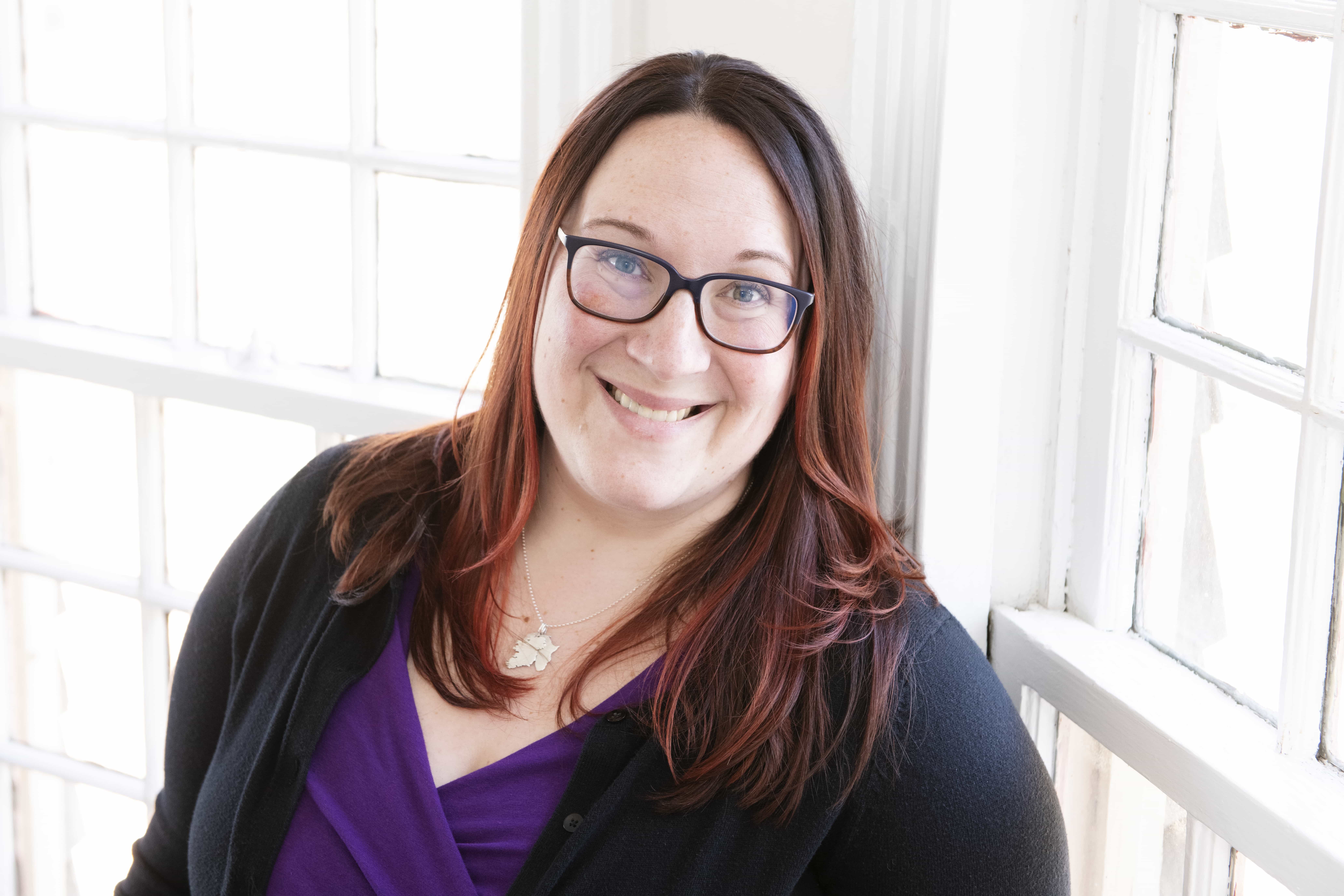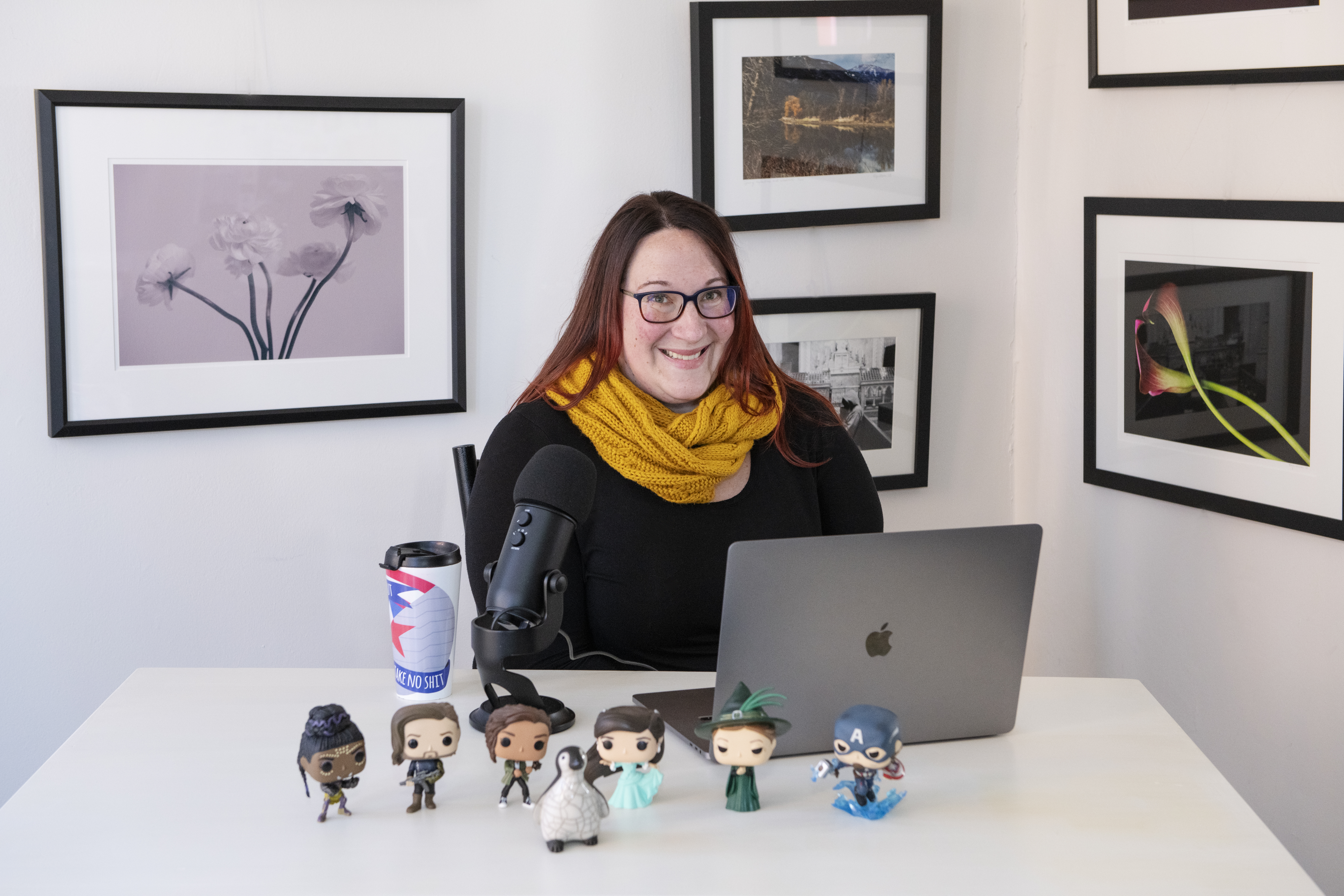Working with thought leaders on shaping their speaker platform is an incredible privilege. In this candid conversation, Dr. Kristen Donnelly of Abbey Research, shares her thoughts on inclusion, her resistance to resilience and how to start healing our collective well-being.

Tricia: You talk about the beauty in difference and the power of inclusivity. What about being different is beautiful for you, Kristen?
Kristen: Oh, gosh, everything! I think the best way to be human is to surround yourself with folks whose lives are different than yours. It breeds patience, and empathy, and joy to see the world through different lenses.
Tricia: And how is being inclusive powerful in your POV.
Kristen: There are the factual elements of it: decisions made by inclusive groups lead to more sustainable solutions, inclusivity as a priority means that capital wealth is spread through more communities and thus allows for economic growth in more sectors. Those are so true! The dollars and cents of inclusivity makes the argument for me in so many ways, but the true power is deeper.
Inclusivity – where each person is allowed to be their whole selves all the time, all their messes, all their opinions, all their history, all their views – makes our understanding of everything richer. Instead of having someone in the room because they tick a certain box – the woman in the room, the Muslim in the room, the disabled person in the room – and instead allows humans in the room. My friend Sam, who has Cystic Fibrosis, is allowed to be more than her lungs. We can talk about her love of soccer, and her feelings on the new season of Survivor. We can build relationships around those things, and then we can talk about how she feels about being the ‘sick kid’ in her family, or how her CF has affected her college experience. Until relationships are built, asking people to, as they say, open a vein for us to learn from is inappropriate. Tolerance asks us to do that, inclusion prevents it.
Tricia: When did you realize that you were meant to be an empathy educator?
Kristen: It’s been an evolution of thought for sure. I started getting bothered by the concept of tolerance in college and my early 20s, and then I just kept gathering stories and evidence that how humanity was talking about tolerance resulted in a general attitude of ‘I acknowledge your existence.’ Acknowledging someone’s existence does… nothing. It gets us to where we are now, where we are siloed into communities and people who move between them are the exception and not the rule.
In the last few years especially, I found myself consistently surprised at how little everyone understood each other, and that we couldn’t seem to grasp that understanding someone isn’t condoning their beliefs or actions. The need to label myself this professionally crystallized during the summer of 2020, when I realized that there was a gap in the conversation about equity and justice. There were so many earnest people who were shocked, genuinely, and didn’t know what to do with their emotions around that shock, especially when so many loud voices told them they shouldn’t be shocked. I like having those messy conversations, where we hold several true things in tension at once, and that’s when I knew this was the call on my life.
Tricia: How is all of this related to well being and health and mental resilience?
Kristen: Well, here’s a slightly controversial opinion: if it is, it’s connected to trauma, and then I don’t think it’s resilience and instead we’ve confused it with resignation. How many ‘resilient’ people that you talk to that are simply without other options? Is resiliency really a choice? And are you not resilient if you struggle with mental health and yet still are doing life? What even is resilience in the context of sustained communal trauma? It’s a fascinating question to me that I’m still wrestling with the answer to.
All the books I read about building resiliency, and the people I hear talking about how to be more resilient, seem to be people of incredible societal privilege. White, middle class, folks with access to resources and apparently controlled mental health. I can’t get past the idea that we’re missing something important by embracing it as a value for everyone.
Tricia: Let’s talk about resilience a little deeper. COVID, systemic racism, inserections. What about all of this is hurting us and what about all of this is teaching us about resiliency?
Kristen: To be frank, what about it isn’t hurting us? I have been consistently surprised over the last several years at how the knee jerk reaction for most folks when violence happens against marginalized communities, or something like the insurrection against the U.S. Capital, is “this isn’t America.”
I find that response to be incredibly damaging. First of all, the U.S. does have a long history of violence against various groups, and so the myth of the ‘melting pot’ that occupied that national descriptive for so long is just that – a myth. Second of all, if American citizens are perpetrating the violence, it is America. We are our people. The more interesting question to me is ‘does it have to be?’
But because we don’t ask that question, and we just wring our hands over the idea that this ‘isn’t America,’ it prevents us from addressing the root causes of whatever happened. A young white man going into a historical Black church and opening fire during prayer? If we claim ‘this isn’t America,’ we can’t talk about gun access, differences in police responses, a long history of attacks by white people on Black churches, etc. Instead, we just get caught in a narrative cycle that keeps us occupied until the next tragedy to discuss.
In terms of resiliency, I think of how many documentaries I’ve watched where a Black woman, or an Indigenous teenager, or a survivor of sexual assault talk about how resilient this has made them, and I’m glad that’s their personal response. But trauma is such a weird beast, that I get uncomfortable championing it as the proper response to the traumas we’re talking about here.
Tricia: How can we create a more well being in a time that is so culturally, politically and economically divided?
Kristen: The primary way to do that is to de-center your opinions as the ‘proper way to be human.’ If you read about a protest in the paper, and your first reaction is ‘well, that’s distasteful,’ pause and ask yourself why they might be out in the streets. If you get told that your words hurt someone, don’t let your immediate reaction be defensiveness, and instead consider if something you did out of the best of intentions may not actually be great. Start there, get practiced in that, and notice the difference it makes in the rest of your life.
Tricia: Do you think physical immunity can be increased by increasing our capacity for empathy?
Kristen: That’s a fantastic question that I don’t feel completely qualified to answer. I have a deep reverence for science and data, and I know there are studies that point to yes – especially when it’s a doctor’s empathy for a patient (Hamilton, 2017; Yang et al, 2018), but there’s also at least one study that points to high empathy being executed without caring for oneself can lead to more stress (Manczak, et al, 2016). As all good research leads to more questions, I have more questions around this than answers, to be completely honest.
What I do understand about the body/soul connection is that there is one. As such, I believe that any discipline we introduce into our lives that de-centers our experience and forces us outside our insularity, connecting us to the universe at large in profound ways, will boost the effectiveness of our entire system.
Kristen Donnelly (MSW, M.Div, PhD) is an empathy educator, speaker, and researcher with two decades of experience in helping people understand the beauty in difference, and the power in inclusivity. She is one of The Good Doctors of Abbey Research, COO of their parent company, and an unapologetic nerd for stories of change. Kristen lives outside of Philadelphia with her husband, where they are surrounded by piles of books and several video game consoles.


